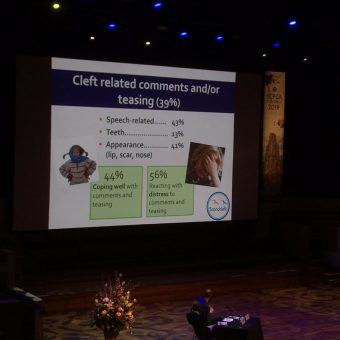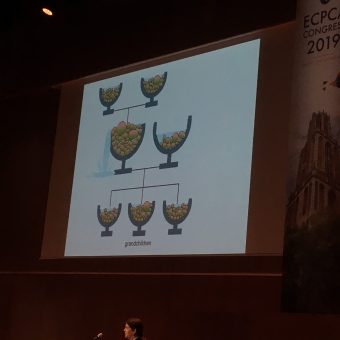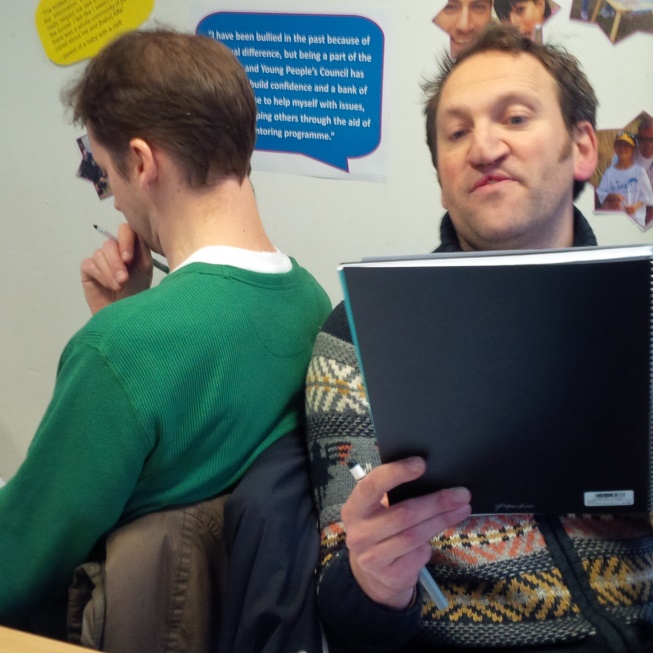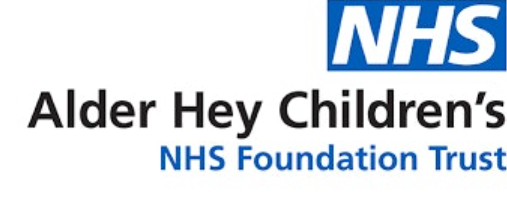
CLAPA Presents at European Cleft Conference in Utrecht
Kenny Ardouin, CLAPA’s Adult Services Coordinator attended the European Cleft Conference in Utrecht, The Netherlands in June 2019. Here, he reports back to the community on the trip.
About the conference
The European Cleft Conference happens once every four years, and is well-attended by delegates not only from Europe but also from all around the world. These include a number of my former colleagues from Australia and New Zealand, as well as delegates from the United States, Mexico and beyond. Around 1,200 people attended the conference, which ran from Wednesday 12th to Saturday 15th June. Like most attendees, I attended from Wednesday to Friday as the Saturday sessions were much more niche and are less applicable to the day-to-day work that CLAPA does.
The conference was held in one of the most amazing buildings I think I’ve ever been in – the TivoliVredenBerg concert hall in Utrecht – a city which is in The Netherlands but not in the province of Holland as they were keen to point out multiple times.
There were only a few presentations with all 1,200 people which were held in the grand theatre on the ground floor, most of the presentations were running in concurrent sessions with about 200 people at a time across different floors. Psychology was usually on the 9th floor of the building up the most magnificent staircase (not for the fainthearted or those scared of heights), so it was quite a climb! A climb that was well worth it, though, as I learned lots while I was up there. In contrast to some other conferences, speaking slots at the European conference are allocated as either 10 minutes or 20 minutes, so there’s a lot more time to actually start to explore a topic. Fortunately for us, the entire conference is conducted in English, with the exception of the food service which rather amusingly was presented solely in Dutch! I do take my hat off to all the European researchers who come along and talk about very complex subjects so articulately in their second language – if you ever were to start developing an inferiority complex, spend some time with these researchers.
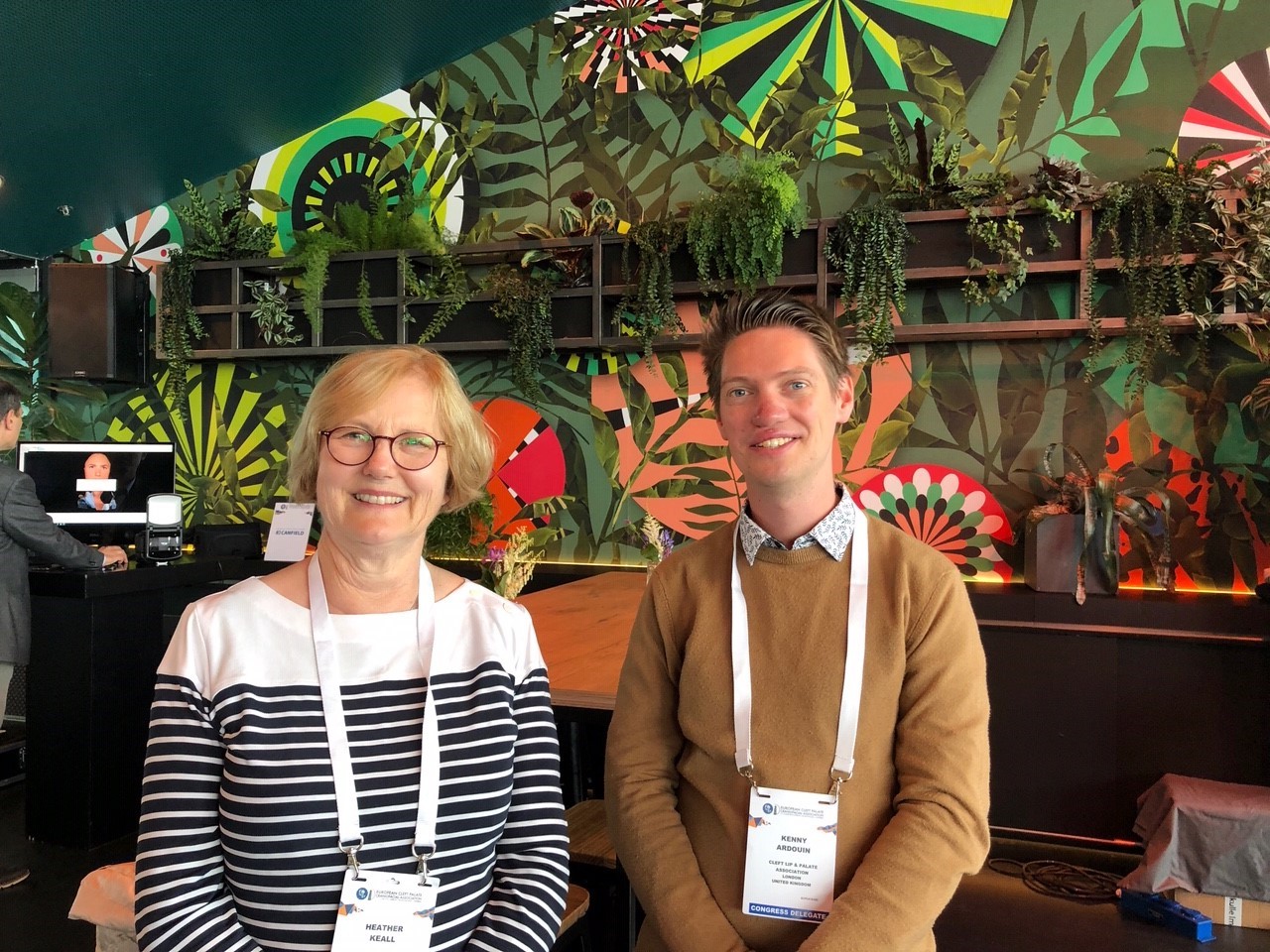
What Was I Presenting About?
I had a 10 minute slot in the 8.30am psychology session on Thursday to talk about the Adults Research Project, and that session was attended by one of the larger and more diverse audiences I’ve presented to. I was quite fortunate for my presentation to be sandwiched between Nicola Stock from the Centre for Appearance Research (CAR) and Jess Hare from the Scotland Cleft Team, two people who I have had the pleasure of collaborating closely with in this project, so it flowed really well.
As it was an international conference, I started my presentation with an explanation of CLAPA as an organisation, and the service delivery we offer for parents, babies, children, young people before moving on to adults. I explained the rationale behind our project and spoke in scientific terms about the survey (for our more geeky followers, I’m talking about the standardised measures we used and the statistical significance of what we had unearthed). I provided a summary of the four papers that I’m co-writing with Nicola Stock. I outlined our plans for the panel discussions, leavers’ pack and Glasgow conference. The leavers’ pack got particular interest, with lots of support and questions about the content, which were all things we were already planning to include which was great. I can already see the Leavers’ Pack being one of the biggest legacies of this project.
Again, as it was an international conference, I provided some take home messages for people who perhaps did not have an organisation such as CLAPA or a psychology service in their country as to how they could support adults. These included:
- Recognising that adults’ cleft experiences may be a complex interaction of medical, social and emotional experiences. Talking to children from a young age about social and emotional difficulties could help destigmatise it and reduce the likelihood of unresolved issues lingering into adulthood.
- Understanding that adults may want to articulate how they’re feeling to you, but may lack the means, or not feel comfortable to do so. Try and create an environment where they feel comfortable to do so, particularly when discussing treatment options.
- Take the time to explore their whole of life goals with regard to cleft – e.g. do they really want a rhinoplasty to improve their nose symmetry, or are they actually wanting to improve their confidence?
- Consider advocating within your health service for psychological input – our data demonstrates that the cleft community deem it to be an invaluable addition to the cleft team
In the breaks afterwards, I received lots of nice feedback on the talk, the work we were doing on the adults’ project, as well as support more generally for CLAPA as the world’s largest and leading cleft support charity. Seeing the recognition of CLAPA’s wider work and contribution to the UK and international cleft community on the world stage is something we should all be proud of.
What I Learned From Others
I also learned a lot from the other presenters there. Of particular interest were the advances made in research surrounding genetics. As a lot of the data is not yet published, it would be unfair for me to publish a spoiler here (and risk getting it wrong!) Suffice to say, there’s some fascinating research going on looking at how cleft occurs and some of the other things that may be experienced alongside a cleft. If this interests you, a great starting point where we’ve attempted to consolidate some of the known research is in our Genetics Episode of Cleft Talk.
Another fascinating discussion was from Kristien Hens from the University of Antwerp in Belgium which discussed the ethics surrounding termination of pregnancy following the diagnosis of a cleft. She explained the differences in attitudes and legislation towards abortion throughout Europe. This results in a concept she described as “abortion tourism” happening where people may travel to a different European country to access a termination (this happens even within the UK with different legislation for Northern Ireland vs Great Britain). She explained how the legislation isn’t necessarily set up to provide the answer to these ethical questions, and also outlined a potential conflict between feminism (right to bodily autonomy, the right of a woman to elect to have an abortion etc.) and disability rights (e.g. the right to not have a foetus terminated on the grounds of disability alone). Different jurisdictions place greater emphasis in either direction. It was an interesting discussion and a fascinating piece of work.
Next, Elisabeth Mangold from the University of Bonn in Germany did a really interesting presentation on genetics which explained that there are hundreds of different genes that contribute to cleft and therefore the causes of cleft can be vastly different from one person to the next. We all will carry genes capable of passing a cleft onto our children. Whether we do, she likened to a glass, half full with water, and we add a few marbles of different sizes – these marbles represent different genes and environmental factors. If you put too many marbles in the glass, it overflows, the water tips out and you would be born with a cleft. Everyone’s glass will be different amounts full – some people’s may be less than half full, others may be at the brim. Depending on your partner’s glass configuration, when you two decide to have children, it may tip your child’s glass over the edge, or may fill it to the brim. If yours if full to the brim, and you have children with someone who’s is also filled to the brim, you may pass cleft onto your child despite there being no prior history of cleft in either family – this is how seemingly isolated cases actually can have a strong genetic component. It also helps explain how a cleft can skip a generation. I felt this was a great lay person explanation.
In summary, it was a privilege to have the opportunity to represent CLAPA at the European Cleft Conference and to share our work with an international audience, whilst also learning new findings and ideas from the many other delegates from around the world.
